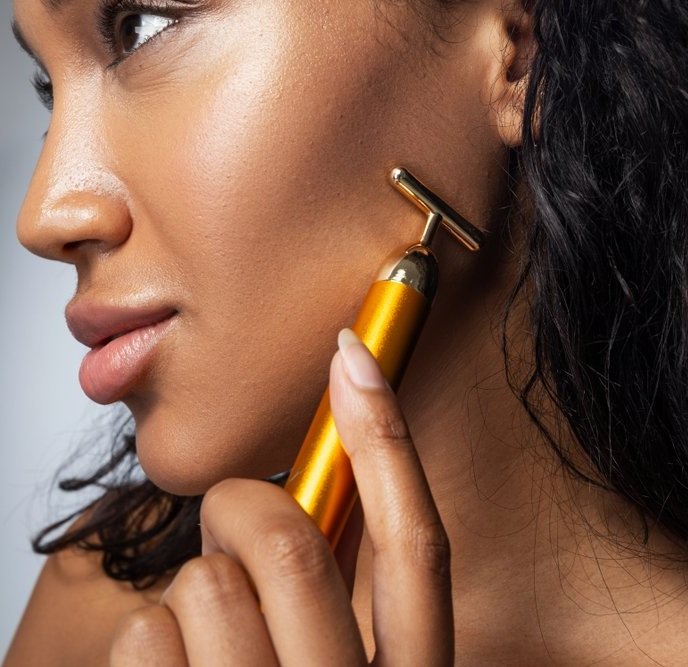
MEDICAL
Offering a range of medical options to suit your concerns.
TEETH CLENCHING & GRINDING (TMJ)
HYPERHYDROSIS (EXCESSIVE SWEATING)
-
Teeth Clenching & Grinding (TMJ)
Temporomandibular joint (TMJ) disorders, also known as Bruxism and is a condition characterized by the grinding or clenching of teeth, usually unconsciously, often during sleep. It can also occur while awake in some individuals. Bruxism can lead to a variety of dental and health issues if left untreated.
-
Hyperhidrosis (excessive sweating)
Hyperhidrosis is a medical condition characterized by excessive and uncontrollable sweating that goes beyond the body's normal cooling mechanism. This condition can significantly impact a person's quality of life, causing social discomfort and interfering with daily activities.
TMJ disorders often involve pain, muscle tension, and problems with jaw movement. We provide relief to the masseter muscle, which are the muscles responsible for jaw movement and chewing, can offer several potential benefits for certain individuals.
TEETH CLENCHING & GRINDING (TMJ)
Hyperhidrosis is a medical condition characterized by excessive and uncontrollable sweating that goes beyond what is necessary for temperature regulation. This condition can significantly impact an individual's daily life, self-esteem, and overall quality of life.
The nerve signals are blocked to sweat glands and provide relief from excessive sweating. This is commonly used for underarm sweating.
HYPERHYDROSIS (EXCESSIVE SWEATING)
TEETH CLENCHING & GRINDING (TMJ) FAQS
-
The duration of teeth clenching disorders can vary from person to person.
On average, the effects last around three to four months. However, some individuals may experience results lasting up to six months or more, while others might find that the effects wear off after a shorter period
-
Temporomandibular joint (TMJ) issues, often referred to as temporomandibular joint disorders (TMD) or temporomandibular disorders (TMD), can cause a range of uncomfortable symptoms and problems related to the jaw joint and the muscles that control jaw movement. These issues can affect your daily life and overall well-being.
Here are some common issues associated with TMJ:
Jaw Pain: One of the most prominent symptoms of TMJ issues is jaw pain, which can vary from mild discomfort to severe pain.
Clicking or Popping Sounds: Some individuals with TMJ issues may experience clicking, popping, or grating sounds when opening or closing their mouth.
Limited Jaw Movement: TMJ problems can lead to limited range of motion in the jaw joint. This can result in difficulty opening the mouth fully or experiencing a "locked" jaw.
Facial Pain: Pain can radiate from the jaw joint to other areas of the face, including the cheeks, temples, and even the forehead.
Chewing Difficulties: TMJ issues may make chewing painful or uncomfortable, particularly when eating hard or chewy foods.
Tooth Sensitivity: Some individuals with TMJ problems may experience heightened tooth sensitivity, particularly if there is grinding or clenching of the teeth involved.
Headaches: Jaw-related muscle tension and pain can trigger tension headaches or migraines.
Stress and Anxiety: Emotional stress and anxiety can exacerbate TMJ symptoms, as stress can lead to increased clenching and tension in the jaw muscles.
Sleep Disturbances: TMJ issues, particularly if associated with bruxism, can disrupt sleep patterns and lead to poor sleep quality
-
It can help slim down the appearance of the jawline by reducing the size and prominence of the masseter muscles. This can create a more aesthetically pleasing facial contour, especially in cases where the jaw muscles are overdeveloped, leading to a square or strong jawline.
HYPERHIDROSIS FAQS
-
It work by temporarily blocking the nerve signals responsible for activating sweat glands, thereby reducing sweat production in the treated area. It is particularly effective for focal hyperhidrosis, in this case for the underarms.
-
Many individuals experience a significant reduction in sweating within a week or two afterwards.
The effects can last on average around six months, but this can vary from person to person.
-
Patients have reported minimum discomfort.
